What are the blockers in three-in-a-row games?
In projects in the three-in-a-row genre, blockers are often found. About why they are needed, what they are and in what titles they can be found – read the material on our website.
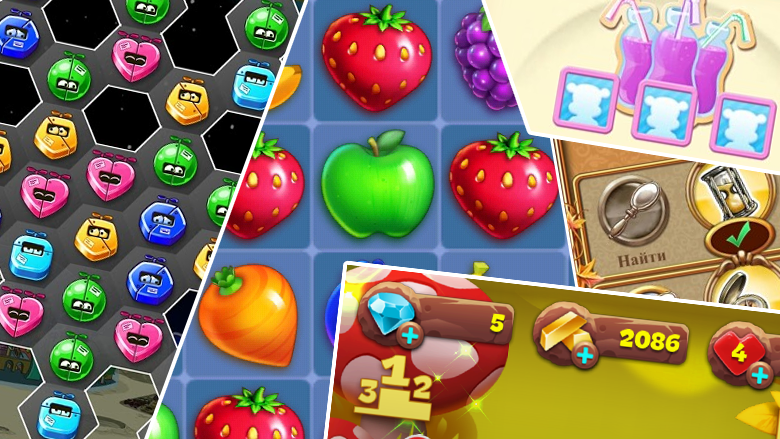
Blockers are entities that slow down the user’s game progress. They can be called a traditional tool in the work of a game designer. They are used for a wide range of tasks.
For example, in paid action games, bosses act as blockers, which mark the completion of a particular stage. They are also often something like a challenge to the skills that the player received during the passage of the level.
In shareware games, blockers are one of the ways to regulate the rate of content absorption. With their help, designers dose the content feed (an energy system is also used for this).
Blockers, restricting access to content, are also one of the most important monetization funnels in shareware games. The desire to instantly gain access to the levels stimulates purchases.
Today, blockers are most clearly present in games in the three-in-a-row genre. In the latter, they often mark the end of the pack.
Which blockers in games of this type are the most popular on the market and how common are they here at all?
To answer this question, Nevosoft game designer Ruslan Gerasim played 21 projects. His selection of games came either from the tops or from the features. Based on the experience they played, they were allocated six types of blockers.
Time Blocker
Gives access to game content after a certain time.

Jelly Splash
If the term is long, it is perceived negatively.
The player can simply leave the game and not return.
Encourages the most impatient to buy.
Blocker on the stars
To open new content, this blocker requires you to dial N-the number of stars in the level pack. As a rule, it requires you to score the maximum number of stars in most levels of the pack.
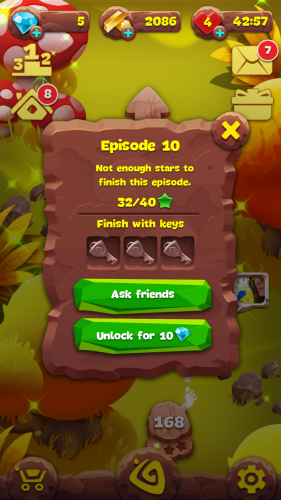
“Planet of Gems”
On the one hand, this blocker actively stimulates purchases, has a positive effect on retention (players are forced to actively replay to get new content).
On the other hand, the part of the players who lack luck or the skill to pass the levels quickly and painlessly perceives this blocker negatively. The latter can lead to a dump.
Blocker on quests
In fact, the same blocker on the stars. The key difference is the binding not to how the levels of the last pack were completed, but to whether the player has certain items. The last player gets by passing the levels.
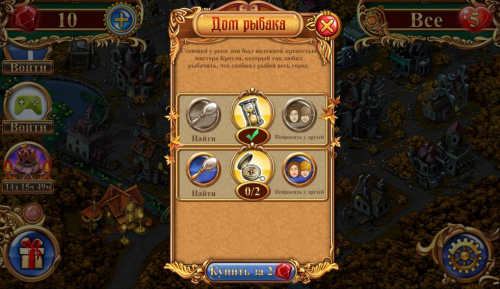
“Watchmaker”
As a rule, such blockers are used in non-traditional three-in-a-row – with a complex binding (the presence of collections, elements of time managers, and so on).
Often, such a blocker (or rather, embedded mechanics) forces you to repeatedly go through the levels. Here you need to approach carefully so that the replayability does not turn into a permanent farm (but this often happens).
Blocker with levels
A blocker for a while, but the expectation is diluted with additional levels.

Crazy Cake SwapBlocker with boss/difficult level
Here, either a level with separate mechanics (with slightly more complex rules), or just a complex level acts as an obstacle.
From the point of view of logic and narrative (see Futurama) – this works fine, but it can cause a dump in the absence of dynamic complexity or bonuses to a weak player if he is unwilling to pay.
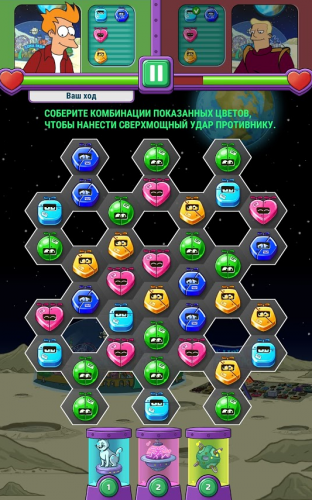
FuturamaViral blocker
Requires to withdraw – send out invitations to friends.

Candy Crush Soda Saga
As a rule, all the listed blockers are also removed for money.
The table shows the distribution of games by types of blockers:
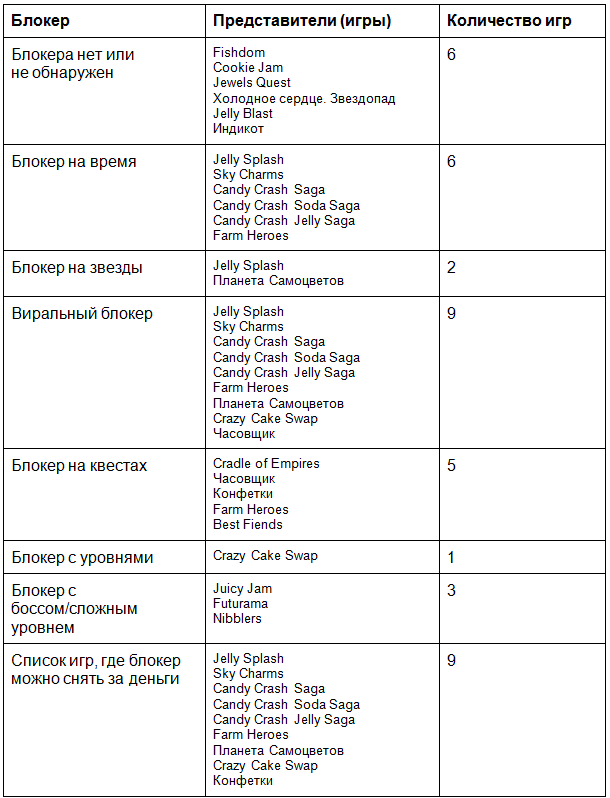
It can be seen from the table that the most popular blockers are those that either require money to be unblocked, or sending notifications to friends.
Are there any games or blockers in mind that are not on the list – let me know!
Research: Ruslan GerasimText: Alexander Semenov